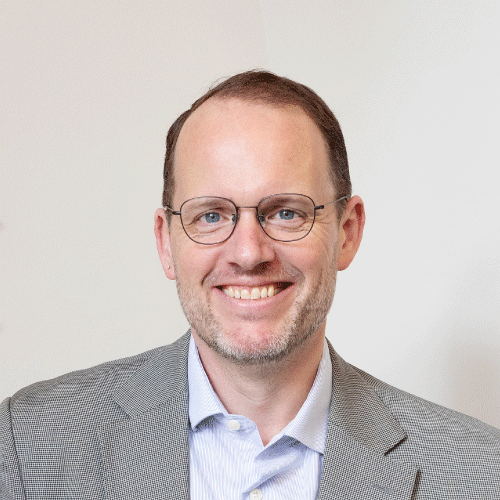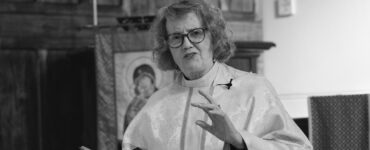From 27 to 29 August 2018 the University of Divinity hosted the Health and Integrity in Church and Ministry Conference. Attended by 250 delegates, the conference brought together church leaders, experts in theology, governance, psychology, counselling and leadership, and survivors of child sexual abuse and their families and advocates.
This was the first major opportunity for churches and religious orders to consider comprehensively the report and recommendations of the Royal Commission into Institutional Responses to Child Sexual Abuse.
I was privileged to be present throughout the conference, and to be given the opportunity to reflect to the delegates on the final day my learning as to what comes next.
Process: Implementation and Accountability
The churches must focus directly on implementing all 57 recommendations of the Royal Commission directed towards religious institutions. While there are many other issues which will be raised and need to be dealt with in the process of implementation, they must not displace these carefully crafted, evidence-based recommendations.
The churches must hold themselves – and be held – to account publicly for their progress in implementing the recommendations. Every church and religious order should prepare and publicly release a progress report on implementation annually, in addition to other reporting requirements. This will be especially important as public interest and government scrutiny lessens in several years’ time.
The Challenge is Theological
The fundamental, distinctive challenge for the churches is theological. Child sexual abuse occurred in a range of institutions, religious and secular. In the case of the churches and religious, however, the theological foundations of governance structures and ministry practices contributed to the failure to prevent child abuse or to remove perpetrators.
The churches must, therefore, engage in profound theological reflection and reformation at the most fundamental levels. There can be no “line in the sand” between the examination of Christian doctrine and practice, and the reforms required to ensure prevention of systemic child abuse recurring in the future.
This is why the seal of the confessional has been contentious – regardless of the case for or against the practice, it is the symbolic “line in the sand” especially for Roman Catholic Christians.
The hard news is that theology is essential to the task of reform, but is not sufficient for it. Other disciplines – governance, ethics, psychology, anthropology – are vital.
The good news is, first, that there are many experts able and willing to help and, second, that the task is more likely than not to see the churches recover and return to authentic witness to scripture and tradition.
An Agenda for Action
Conference delegates identified a number of specific outcomes, envisaged in the recommendations, which could be facilitated through focussed activities:
- Creation and resourcing of a national healing journey in each church or religious order, that is led by trauma-informed practice and the wisdom and needs of survivors.
- Further research into the factors which enable or prevent child sexual abuse, including the treatment and supervision of perpetrators.
- A comprehensive review of formation and education programs for clergy and pastoral workers across all churches, including the creation and analysis of data on the outcomes for graduates, church leaders and church members. What works? What is best practice? What needs to change?
- A centre of excellence in supervision, drawing on research to provide independent, professional, externally accredited supervision for clergy and pastoral workers, drawing on models used in other professions such as health, finance and education.
- Theological research on ecclesiology that drives improvements to structures, ministry and leadership, including the implementation of contemporary ethical standards of governance and elimination of the culture of clericalism. This should include work on the theology of power and authority, and must take account of the “lived reality” of church structures rather than imaginary ideals. Such work should include attention to the presence and voices of children in the church, and should empower theologians to deliver practical outcomes for church and society.
A National Day of Remembering
Many delegates commented on the significance of the Royal Commission in bringing to light the stories of victims and survivors of child sexual abuse, a role described as “bearing witness”. A major concern was how these stories would continue to be told and heard in years to come. Suggestions included monuments, archives, and rituals so that these stories would ensure that this national tragedy would never occur again.
Our facilitator, Ellen Fanning, summed this up with the question “do we need a theology of remembering and forgetting”?
In reflecting on this question, I proposed that the churches need to institute an annual National Day of Remembering on which church communities would create opportunities for the stories of victims and survivors to be told and heard, and on which every church leader would publish a report on progress in implementing the Royal Commission’s recommendations. This Day would ensure that the work of the Commission continued to be received and implemented by the churches not only in the next few years but into future decades.
The conference was intensive and challenging, full of grief, and yet also empowered by a resolve not only to ensure the recommendations of the Royal Commission are implemented, but also to bring about a conversion of hearts and minds in the churches such that all that we do and all that we are is focussed anew on love of God and love of neighbour, and the protection of children and vulnerable adults from harm.
Watch the replay of keynote sessions from the conference

Emeritus Professor Peter Sherlock was the Foundation Vice-Chancellor of the University of Divinity from 2012-2024. He is a cultural and religious historian of Renaissance and Reformation Europe and an expert on governance and leadership in educational and church settings. A graduate of the University of Melbourne and the University of Oxford, his academic career has included an ARC Postdoctoral Fellowship in History at the University of Melbourne and four years as Dean of the United Faculty of Theology, Melbourne.






Add comment